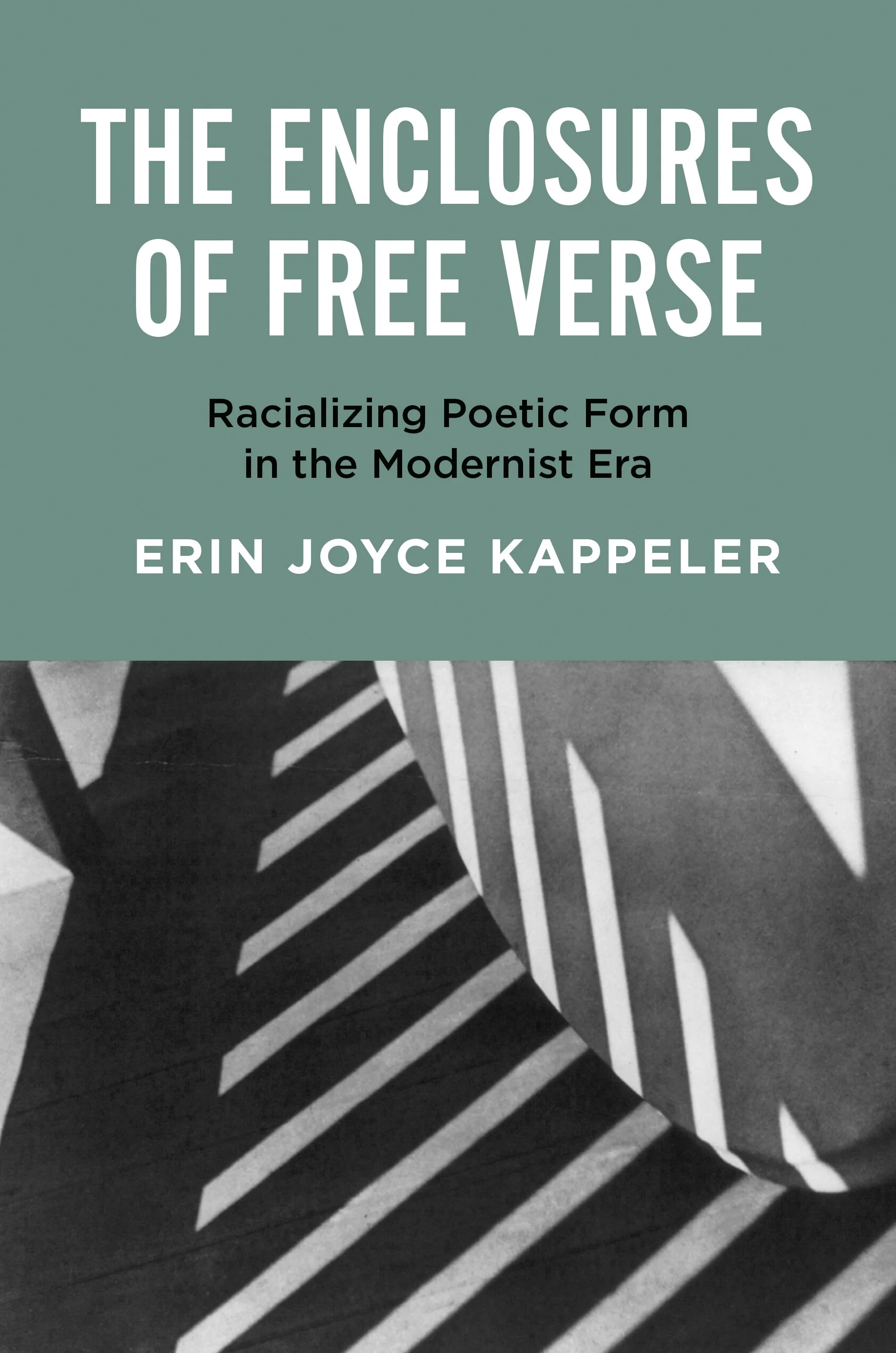I am a former English professor turned instructional designer. This is where you can find my writing, scholarly and otherwise.
Throughout the 20th century, scholars accepted that there was something called “traditional” poetic meter, and that free verse liberated poets from the fetters of old forms. In this version of literary history, free verse saved poetry from cultural irrelevance and marked a broadly oppositional politics. This book tells a different story—and offers a radically new account of the rise of free verse poetry in the United States.
In the 1910s, white academics, editors, and critics popularized free verse by arguing that it was the formal expression of a white American race. For Black and Indigenous authors, free verse did not reliably function as a break or an opening; it was instead a form of enclosure used to shore up racial hierarchies. In The Enclosures of Free Verse, Kappeler shows that free verse was a racial formation of whiteness and explores how Black and Indigenous poets navigated this racialization of poetic form.

